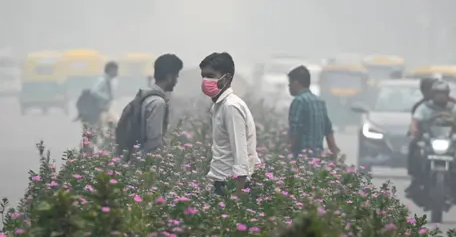Understanding the Silent Killer: The Impact of Air Pollution on Heart Health
Introduction: Air pollution is a pervasive environmental challenge that affects millions of people worldwide, with profound implications for human health. While its effects on respiratory health are well-documented, the impact of air pollution on heart health is often overlooked. In this comprehensive guide, we delve into the intricate relationship between air pollution and heart health, exploring the mechanisms, risk factors, and preventive measures to safeguard cardiovascular well-being.

Section 1: The Link Between Air Pollution and Heart Health
- Understanding Air Pollutants: Dive into the various pollutants found in the air, including particulate matter (PM2.5 and PM10), nitrogen dioxide (NO2), sulfur dioxide (SO2), carbon monoxide (CO), and ozone (O3).
- Mechanisms of Harm: Explore how these pollutants can infiltrate the cardiovascular system, triggering inflammation, oxidative stress, endothelial dysfunction, and the formation of atherosclerotic plaques.
- Impact on Heart Diseases: Discuss the association between air pollution exposure and the development or exacerbation of cardiovascular diseases such as coronary artery disease, heart attacks, strokes, arrhythmias, and heart failure.
Section 2: Evidence from Research Studies
- Highlight key findings from epidemiological studies linking air pollution exposure to an increased risk of heart disease and mortality.
- Showcase compelling evidence from observational and longitudinal studies conducted in diverse populations worldwide, reinforcing the detrimental effects of air pollution on heart health.
- Summarize meta-analyses and systematic reviews that provide comprehensive insights into the magnitude of the association between air pollution and cardiovascular outcomes.
Section 3: Vulnerable Populations at Risk
- Identify vulnerable populations, including the elderly, children, pregnant women, individuals with pre-existing heart conditions, and socioeconomically disadvantaged communities, who are particularly susceptible to the adverse effects of air pollution on heart health.
- Discuss underlying factors such as genetic predisposition, chronic exposure, lifestyle habits, and access to healthcare that may exacerbate the vulnerability of certain groups.
Section 4: Strategies for Mitigation and Prevention
- Policy Interventions: Discuss the importance of stringent air quality regulations, emission controls, urban planning strategies, and sustainable transportation policies in reducing air pollution levels and protecting cardiovascular health.
- Personal Protective Measures: Provide practical tips for individuals to minimize exposure to air pollution, including staying indoors during peak pollution hours, using air purifiers, wearing masks, and promoting green spaces.
- Public Awareness and Advocacy: Emphasize the role of public education, community engagement, and advocacy efforts in raising awareness about the cardiovascular risks of air pollution and mobilizing support for environmental conservation initiatives.
Section 5: Future Directions and Research Opportunities
- Highlight emerging areas of research, including the exploration of novel biomarkers, advanced imaging techniques, and personalized interventions to better understand and mitigate the cardiovascular effects of air pollution.
- Advocate for interdisciplinary collaboration among scientists, policymakers, healthcare providers, and community stakeholders to address the complex challenges posed by air pollution on heart health.
- Propose avenues for future studies to elucidate the long-term consequences of air pollution exposure, assess the efficacy of preventive measures, and identify innovative solutions for mitigating its impact on cardiovascular morbidity and mortality.
Conclusion: In conclusion, air pollution poses a significant threat to heart health, contributing to a wide range of cardiovascular diseases and premature deaths globally. By raising awareness, implementing evidence-based interventions, and advocating for policy changes, we can work together to combat this silent killer and create a healthier, more sustainable environment for future generations. Let us prioritize the protection of our hearts and the planet we call home.




